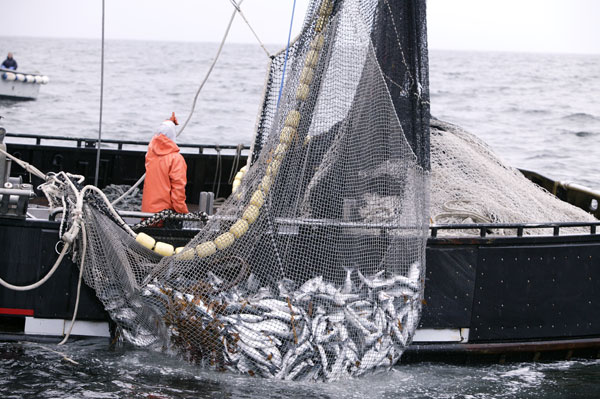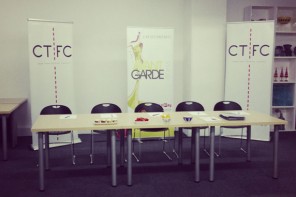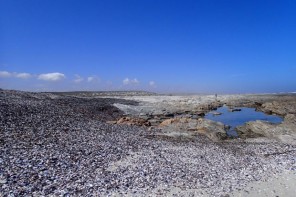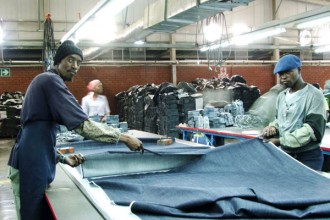You rarely think about the effect your appetite for fish has on the ecosystem (and to be fair, many “fish lovers” eat fish maybe once or twice a week – so how bad can it be?). According to many marine ecologists – the situation is bad. Our appetite for fish is exceeding the oceans’ ecological limits and the biggest single threat to marine ecosystems today is overfishing.
Since large scale commercial fishing began in the 1950s, 90% of the large fish that people love to eat (such as tuna, cod and swordfish) have been fished out, says Greenpeace. Another key indicator of ecosystem health is the population of top predators, which is also disappearing at a rapid rate, with many countries – including South Africa – going to extreme lengths to protect sea predators like sharks.
“Woefully inadequate” regulation of the fishing industry
Greenpeace describes the regulation of the fishing industry as “woefully inadequate” and that the modern fishing industry is dominated by fishing vessels that far out-match nature’s ability to replenish fish. One of the problems is that most of the world’s fisheries are governed by systems with perverse incentives that actually encourage overfishing, says the Environmental Defense Fund.
According to Environment.co.za, overfishing has left species like the musselcracker and red steenbras seriously depleted (so much so that what is left of them now represents 5% or less of what the original populations used to be). A 2010 United Nations’ (UN) Food and Agricultural Organisational report also showed that an alarming 85% of the world’s fish stocks are either overexploited or exploited to the maximum.
The impact of overfishing
Overfishing doesn’t only have an impact on the particular fish species that is overfished, it also has serious effects further up the food chain. Herring, for example, is a vital prey species for cod fish – when herring are overfished the cod population suffers as well.
One of the other results (besides the effect on our ecosystems) is that many fishermen have to work harder than ever to catch fewer and fewer fish, which leads to economic hardship and also been puts their safety at risk. In the past, fisherman had to fish long and hard – and it was simply a matter of luck – if they caught fish, but modern technology such as remote sensing, sonar and Global Positioning Systems has allowed them to locate fish much more precisely than was possible before. Fishing vessels are now also able to operate at depths greater than 400 metres, sometimes even as great as 1,500 – 2,000 metres.
One of the problems with deep-water fish species is that they are characterised by low reproduction, long life and they reach maturity at a late stage (Orange roughy, for example, matures from 20 to 30 years of age and some of them can live to more than 200 years of age). If the fish ends up on a dinner plate before this time, the species won’t be resilient to over-exploitation.
Overfishing can also lead to the collapse of entire fishing industries. The cod fishery off Newfoundland in Canada, for example, collapsed in 1992 and approximately 40,000 jobs were lost.
Sustainable fishing
There are a number of new fishing techniques, revived fishing techniques and industry regulations that can be incorporated to start addressing the problem. In America, for example, the “catch share system” is used, where fishermen and fisheries are given an allotted share of a scientifically pre-determined amount of fish to be caught throughout the season.
A study released in the Science journal has showed how overfishing can be turned around through catch shares. The study examined more than 11,000 fisheries (a fishery is a population of fish caught commercially) from around the world between 1950 and 2003 and the study showed that if catch share systems had been in place globally in 1970, only about 9% of the world’s fisheries would have collapsed by 2003, rather than 27%. The study also showed that fisheries managed with catch share programs dramatically outperformed fisheries without them.
Environment.co.za advises South Africans to buy fish the same way you would buy fruit and vegetables – only buy what’s in season. Buying in-season seafood helps keep overfishig down by keeping the demand for that particular seafood high only when its catch is naturally high. They also advise to eat different types of seafood, as eating only one type of seafood is a huge contributor to overfishing (since the fishing industry also works on a supply and demand basis). Another option is to only eat and buy fish placed on the SASSI Green List. These fish come from healthy stocks and the list is monitored continuously.











